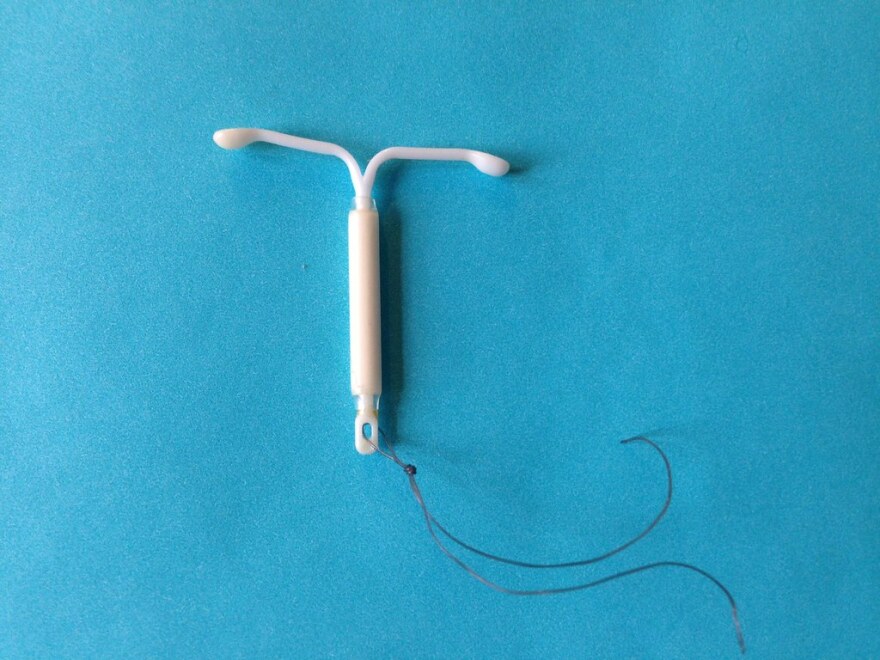BETHLEHEM, Pa. — New pain management recommendations are out for the insertion and removal of intrauterine devices, known as IUDs.
A local physician is weighing in on the options.
The Centers for Disease Control and Prevention (CDC) recently released new guidelines surrounding IUD pain management for the first time in nearly a decade.
The T-shaped device is placed into the uterus to help prevent pregnancy.
The CDC now recommends doctors talk to patients about getting an injection or topical cream to help ease the pain that occurs when the device is inserted.
Personal experiences
LehighValleyNews.com reached out on social media and asked women to share their experiences.
“I was worried about insertion and rightfully so, no pain management, and the woman yelled at me to quiet down when I cried out in pain 'because it's not that bad' and 'you're going to scare the other patients,'" said Roselyn Keir, of Quakertown.
Her experience was in Florida. When she moved to Pennsylvania, she said, she was met with more compassion.
“The thought of removal terrified me. We moved to Pennsylvania right after that and I avoided going to the OB-GYN for about eight years in silence," Keir said. "When I turned 30, I'd finally had enough and booked an appointment with a new family doctor who set up tests and a referral to a new OB-GYN. Those two doctors listened and saved my life.”
Keir is not alone in her fear of the pain associated with IUDs.
Cadence Yarnell, of Allentown, said her experience was difficult.
“I have Kyleena (an IUD). Insertion was awful," she said. "I passed out on the table and almost again on the way to my car. I was not prepared for the pain that came with insertion."
What the doctor says
Although IUDs have proven to be a highly effective for birth control, many women fear the discomfort that comes with getting one.
"It's typically not without some pain or discomfort."Dr. Treasure Walker, Lehigh Valley Health Network.
"They are intrauterine, so they must be inserted into the uterus, and that usually is done in the office, and it's typically not without some pain or discomfort,” said Dr. Treasure Walker, an OB-GYN and complex family planning expert with Lehigh Valley Health Network.
"Certainly our job as clinicians is to listen, counsel and come to a shared decision on what contraceptive use will be best, and really provide the information and the clarity on what's going to happen and the steps taken,” Walker said.
She said having an open dialogue about pain management has always been her approach. She said she tries to counsel her patients on the pain and discomfort they may feel during insertion and removal of the device.
“Talking about pain with insertion shouldn't be a new thing," she said. "I think many of us have been doing this for a period of time, but I do think for some maybe they've downplayed, 'Oh, it's no big deal. You just have this done and in and out in five minutes.'
"And it's not like that for everyone, and so I think being honest about what patients are going to experience, hopefully, will be more on people's radar."
Pain management options
Walker said there are numbing medications that can help ease the pain, but some are administered with an injection that can also cause pain.
“There are some folks who will give an intramuscular injection of an anti-inflammatory which has been shown in studies to help the pain,” she said.
“However, after the procedure is done, the pain from the injection is just as bad as the pain from the IUD, so not the greatest. The topical gels and the lidocaine have been shown to be effective. So a para cervical block has been shown to be effective for patients. However, it is inserted with a needle, so that's most common what I'm able to offer."
The OB-GYN explained that although some doctors advise patients to take anti-inflammatory medications, like acetaminophen and ibuprofen, they have not shown to help this type of pain.
" And I think patients are able to, you know, judge for themselves and trust their own bodies and what they're able to manage or not the topical gels,” Walker said. “We try other methods: hand holding, chatting, talking through it, going through the steps and that can be supportive."
She said in limited cases some people do go under anesthesia to get the device inserted or removed, but that is mostly for cases where the patient has anxiety with pelvic exams or has experienced a traumatic situation. She added that a sedative can also be used, but planning ahead of time and a prescription is needed for that.
Walker suggested patients talk to their doctor about what is best for their personal situation before getting an IUD.
Although some women shared their stories of pain surrounding IUDs, others said they have had great success.
“I had the Mirena IUD for about four years. It was the best birth control I was ever on," said Kayla Ackerman, of Danielsville. "Insertion wasn’t very painful. Mild cramps for a day or two afterwards. Nothing major. Removal was painless and took about a minute."
Intrauterine devices are more than 99% effective at preventing pregnancy, with less than 1% of people experiencing pregnancy while using one, according to Planned Parenthood.
A single IUD can be used for up to 12 years, depending on the patient and their physician's recommendation.


